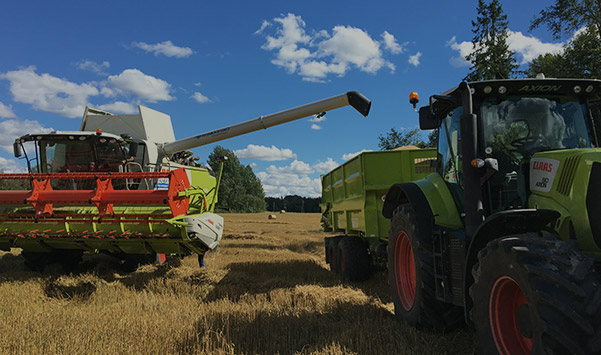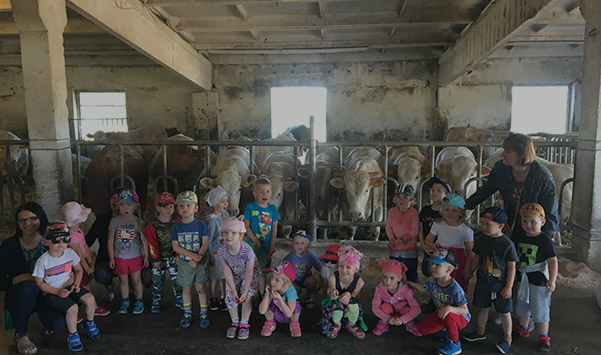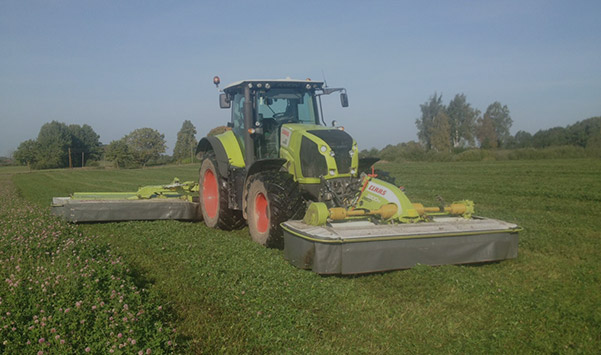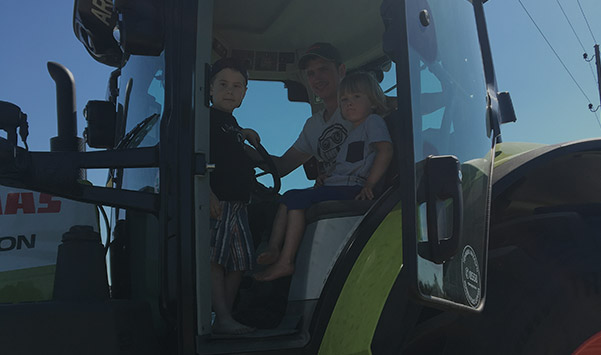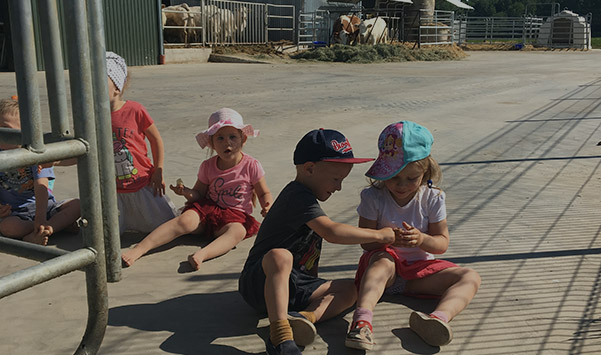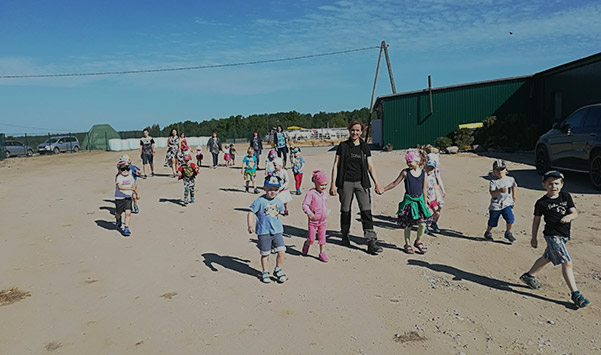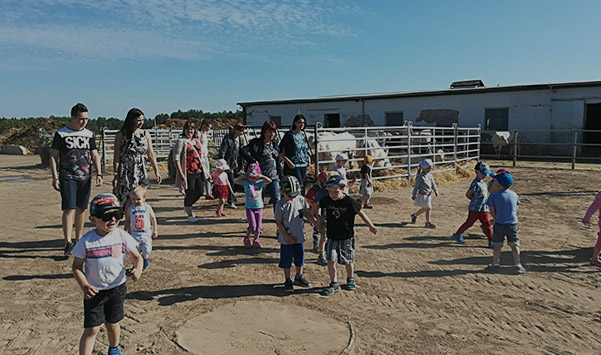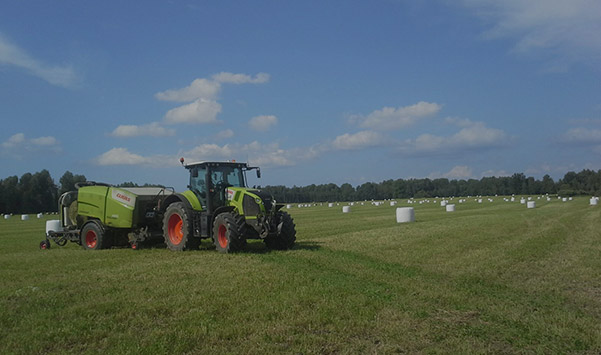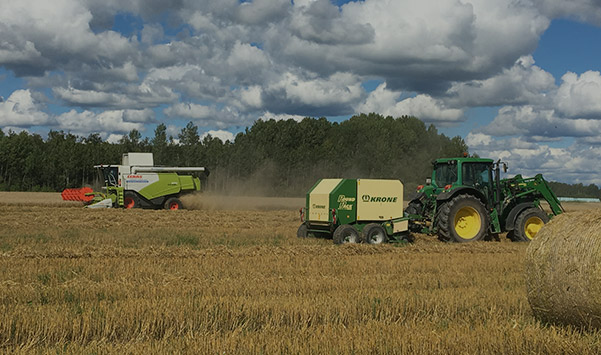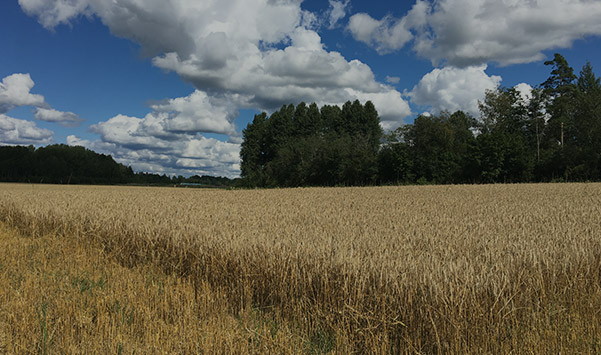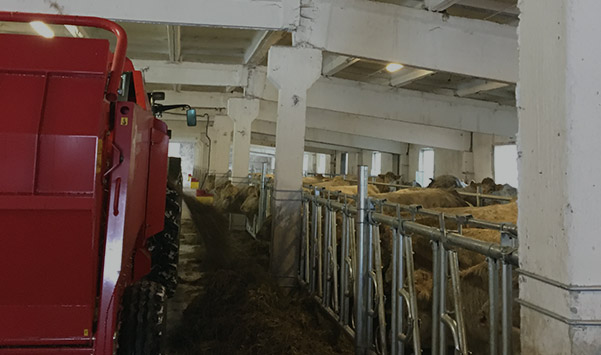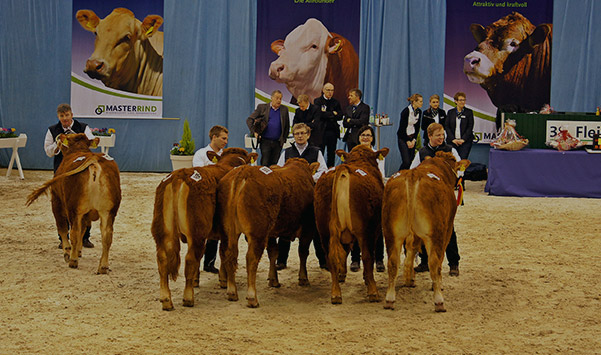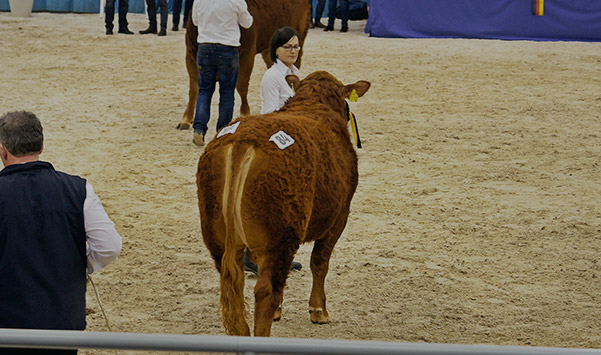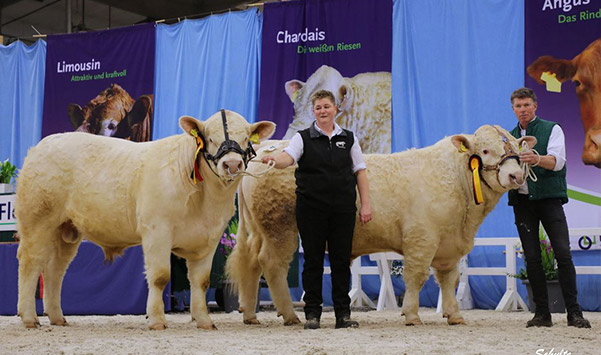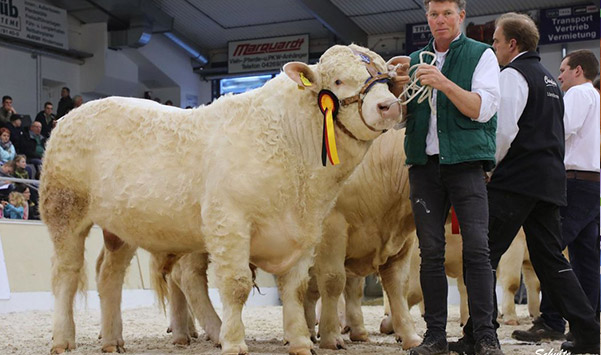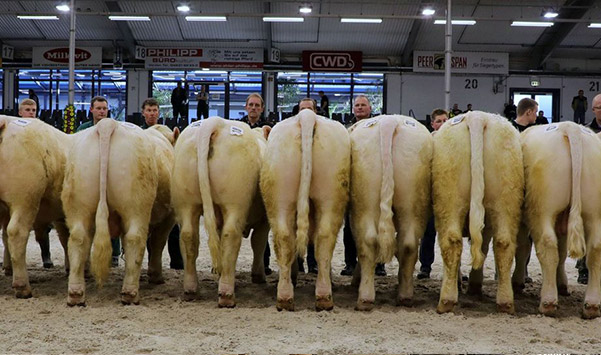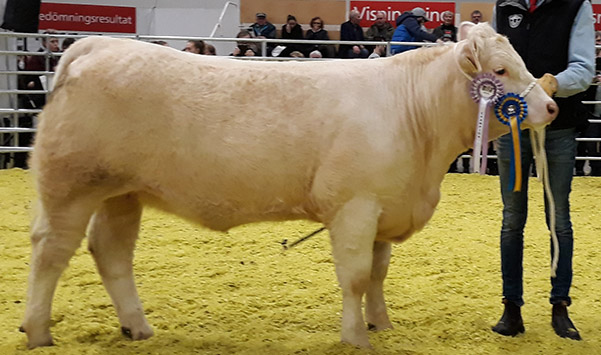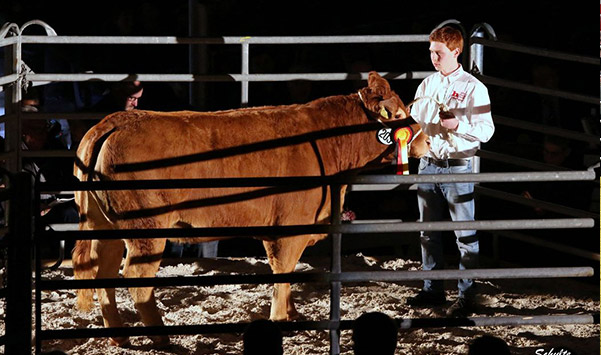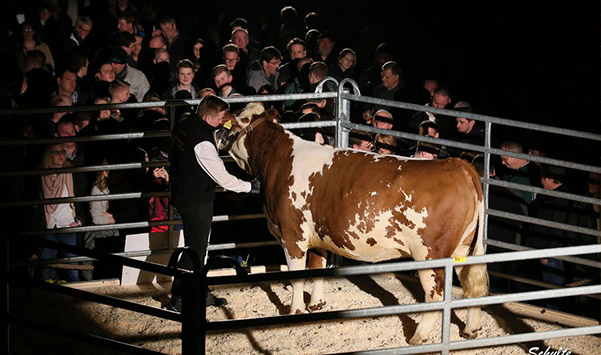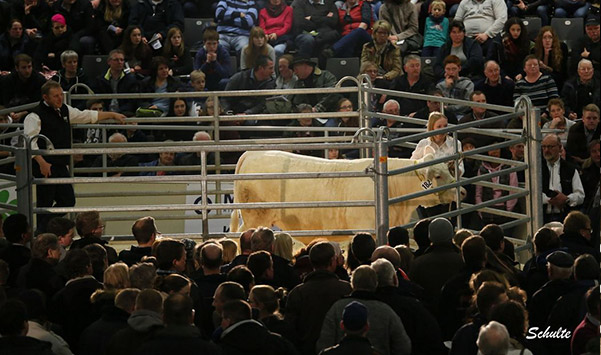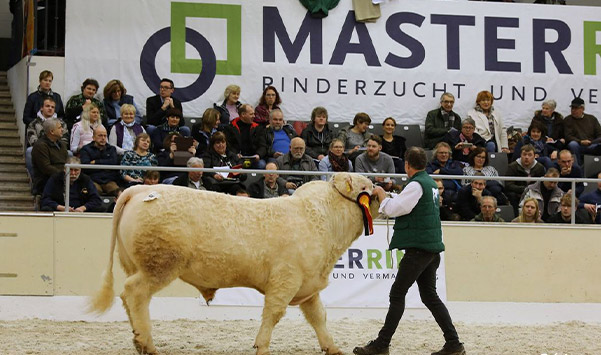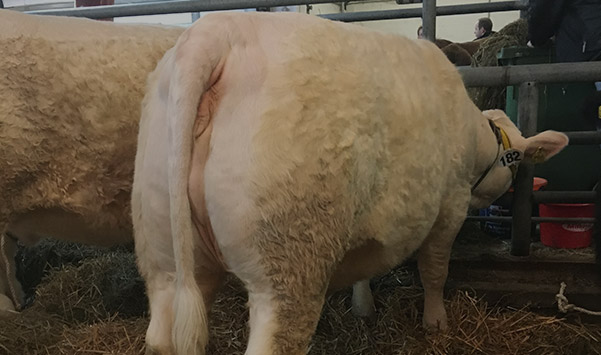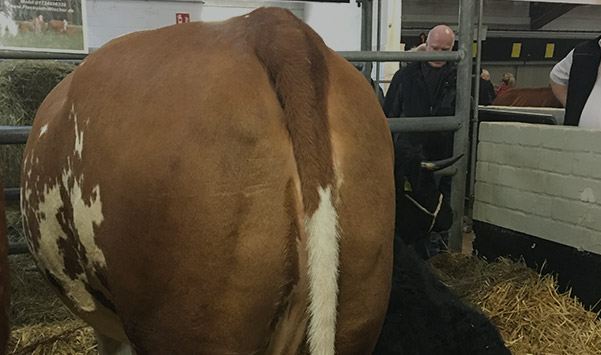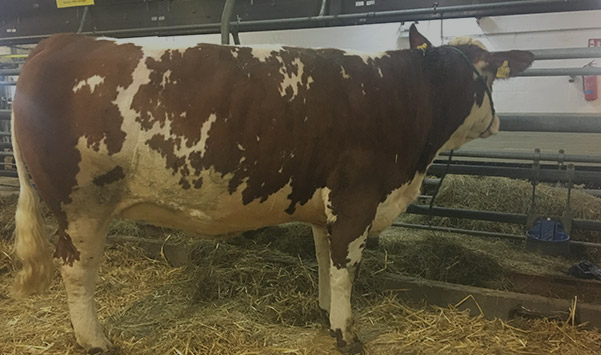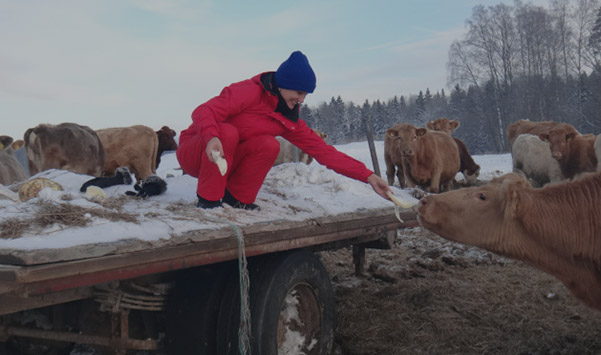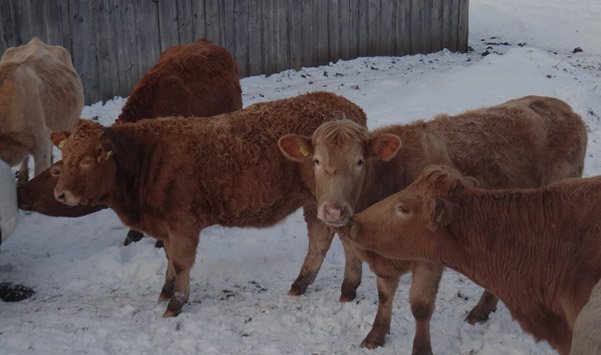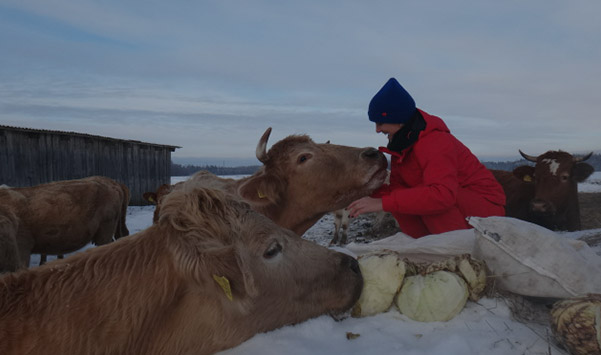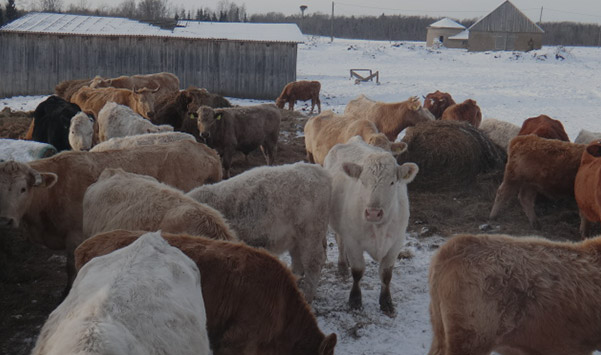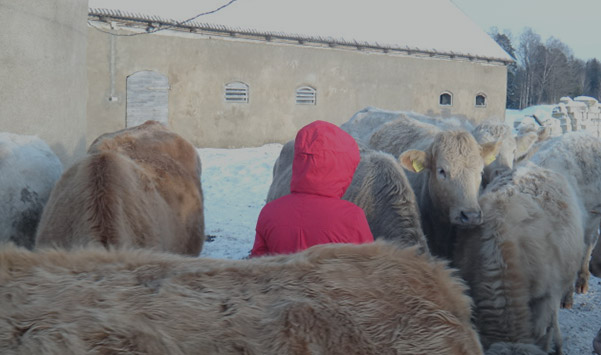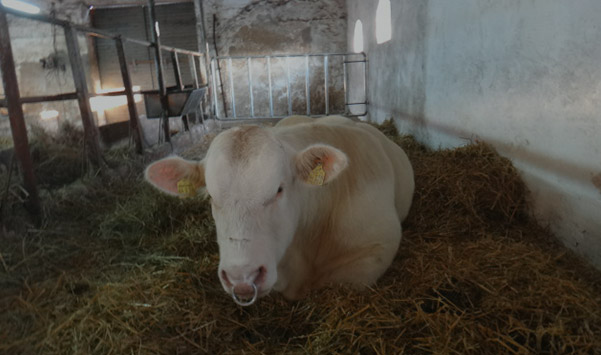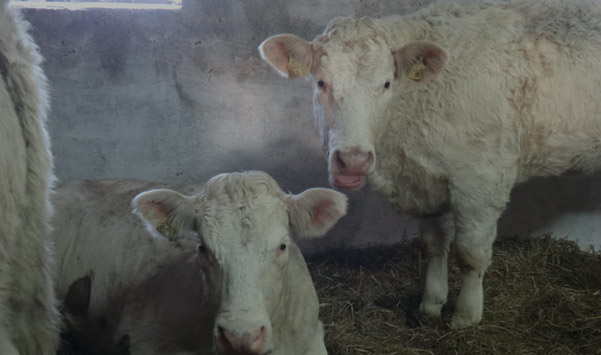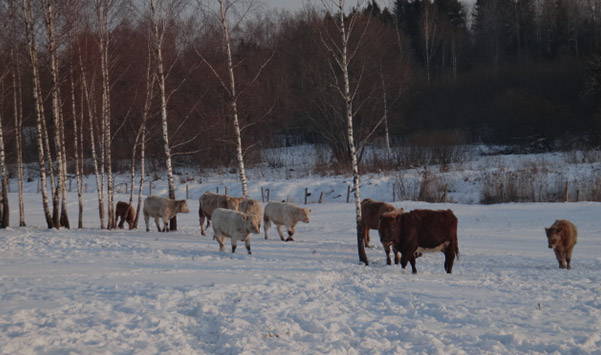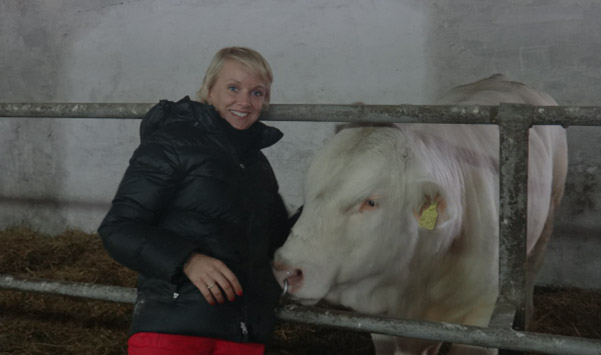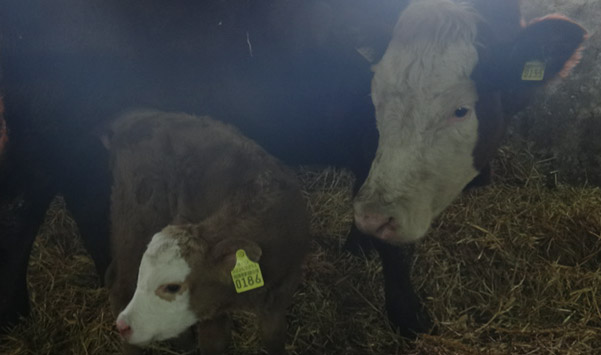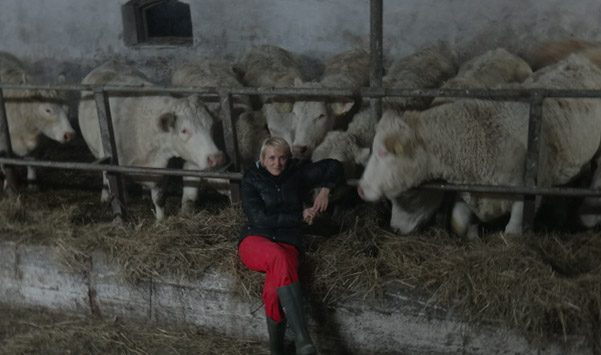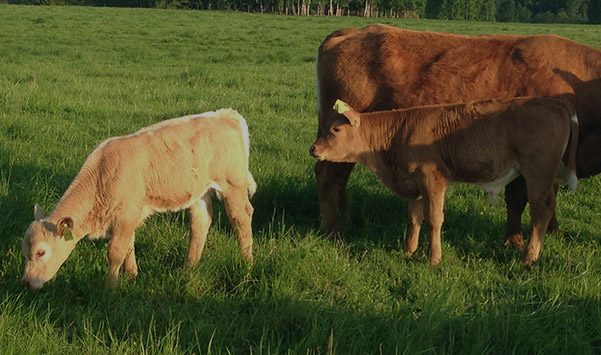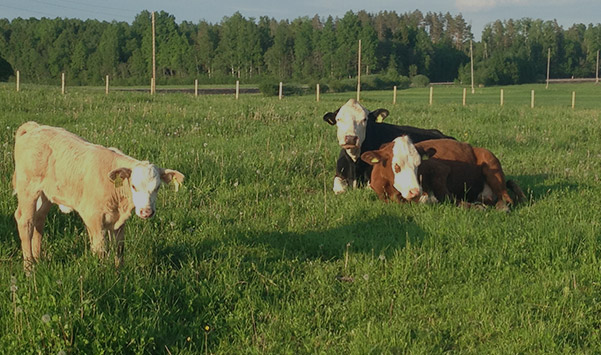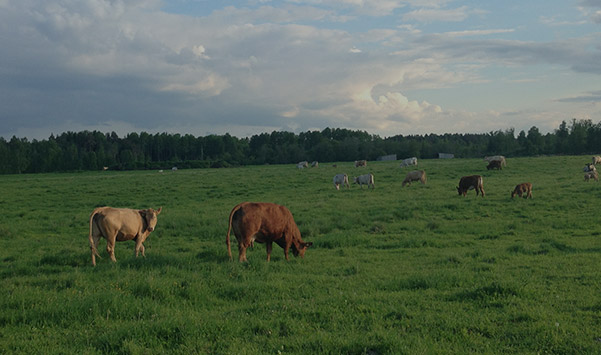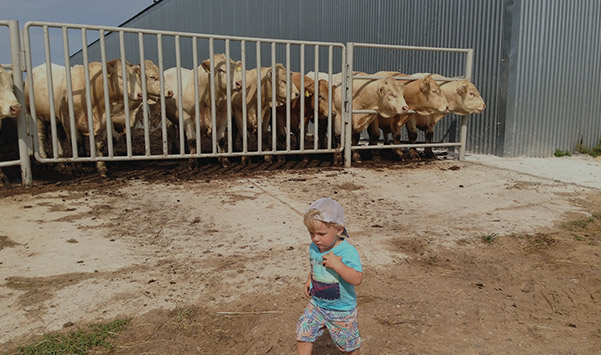About our farm
At the farm KOLUMBI you can purchase premium quality bovine pure-bred breeding animals with excellent German, Swedish, Canadian, American, and French genetics and also high-quality organic beef produced according to the dry-aged method. KOLUMBI rears pure-bred genetic polls (polled cattle) of the CHAROLAIS, SIMMENTAL and LIMOUSIN breeds for breeding.
Whereas ANGUS and WAGYU cattle breeds are kept for meat production. Currently there are around 500 bovine animals at the farm — 200 suckler cows and 6 excellent pure-bred bulls.
Six basic characteristics are considered in the selection of cattle for a herd:
- ease of calving;
- high productivity indicators;
- high milk yield;
- assessment of exterior traits;
- genetic polledness;
- temperament.
KOLUMBI is an organic farm and therefore we comply with the following requirements:
- preservation of biological diversity within grasslands;
- increased animal welfare requirements;
- preservation of a clean, natural environment.
The priority of our farm — healthy, satisfied and qualitative cattle!
Development and strategy
In the course of developing cattle breeding we have implemented multiple EU projects, purchasing machinery and agricultural machines for land management, and we have also modernised cattle housing. As the result of the mentioned projects the housing conditions for animals have been improved and fodder production costs have been reduced and consequently the volume and quality of the produce have been increased.
The main goal in organic farming is the quality of the harvest and the end product, not high yields. The quality is reached through the use of environment-friendly methods.
When forming a herd, we strictly adhere to genealogy, i.e., we follow the principle of genetics to prevent close relations within the herd and to ensure the formation of unrelated new lines in Latvia — premium, high-quality animals to offer to you.
History
The history of the farm dates back to 2004 when cross-breeding of bovine animals started. We owned a total of 150 hectares of farmland. All agricultural areas within the farm have organic certification.
BRIEF HISTORY
The history of the farm dates back to 2004 when cross-breeding of bovine animals started. We owned a total of 150 hectares of farmland. All agricultural areas within the farm have organic certification and the land expands from year to year the same as the number of bovine animals grows.
It was decided to purchase the first Charolais cattle from Germany in 2012. In-calf heifers and one pure-bred Charolais bull, which was purchased at the MASTERRIND auction in Germany, were transported to the farm. As the farm kept expanding, in-calf pure-bred Charolais heifers and one pure-bred bull were brought to the farm also from Sweden.
The breed farm certificate was awarded to the farm in 2014.
In addition, the organic certificate for bovine animals and winter wheat was awarded in 2017.
The farm owns 600 ha of land whereof currently 450 ha of land is being farmed organically and the remaining area is leased out. Temporary grass occupies 330 ha of the land. Each year winter wheat is sown across 10 per cent of the total land area. The wheat is used to produce high-quality fodder for the farm animals.
At the farm KOLUMBI you can purchase premium quality bovine pure-bred breeding animals with excellent German, Swedish, Canadian, American, and French genetics and also high-quality organic beef produced according to the dry-aged method. KOLUMBI rears pure-bred genetic polls (polled cattle) of the CHAROLAIS, SIMMENTAL and LIMOUSIN breeds for breeding.
Whereas ANGUS and WAGYU cattle breeds are kept for meat production. Currently there are around 500 bovine animals at the farm — 200 suckler cows and 6 excellent pure-bred bulls.
Six basic characteristics are considered in the selection of cattle for a herd:
- ease of calving;
- high productivity indicators;
- high milk yield;
- assessment of exterior traits;
- genetic polledness;
- temperament.
KOLUMBI is an organic farm and therefore we comply with the following requirements:
- preservation of biological diversity within grasslands;
- increased animal welfare requirements;
- preservation of a clean, natural environment.
The priority of our farm — healthy, satisfied and qualitative cattle!
Development and strategy
In the course of developing cattle breeding we have implemented multiple EU projects, purchasing machinery and agricultural machines for land management, and we have also modernised cattle housing. As the result of the mentioned projects the housing conditions for animals have been improved and fodder production costs have been reduced and consequently the volume and quality of the produce have been increased.
The main goal in organic farming is the quality of the harvest and the end product, not high yields. The quality is reached through the use of environment-friendly methods.
When forming a herd, we strictly adhere to genealogy, i.e., we follow the principle of genetics to prevent close relations within the herd and to ensure the formation of unrelated new lines in Latvia — premium, high-quality animals to offer to you.
History
The history of the farm dates back to 2004 when cross-breeding of bovine animals started. We owned a total of 150 hectares of farmland. All agricultural areas within the farm have organic certification.
BRIEF HISTORY
The history of the farm dates back to 2004 when cross-breeding of bovine animals started. We owned a total of 150 hectares of farmland. All agricultural areas within the farm have organic certification and the land expands from year to year the same as the number of bovine animals grows.
It was decided to purchase the first Charolais cattle from Germany in 2012. In-calf heifers and one pure-bred Charolais bull, which was purchased at the MASTERRIND auction in Germany, were transported to the farm. As the farm kept expanding, in-calf pure-bred Charolais heifers and one pure-bred bull were brought to the farm also from Sweden.
The breed farm certificate was awarded to the farm in 2014.
In addition, the organic certificate for bovine animals and winter wheat was awarded in 2017.
The farm owns 600 ha of land whereof currently 450 ha of land is being farmed organically and the remaining area is leased out. Temporary grass occupies 330 ha of the land. Each year winter wheat is sown across 10 per cent of the total land area. The wheat is used to produce high-quality fodder for the farm animals.
The history of the farm dates back to 2004 when cross-breeding of bovine animals started. We owned a total of 150 hectares of farmland. All agricultural areas within the farm have organic certification and the land expands from year to year the same as the number of bovine animals grows.
It was decided to purchase the first Charolais cattle from Germany in 2012. In-calf heifers and one pure-bred Charolais bull, which was purchased at the MASTERRIND auction in Germany, were transported to the farm. As the farm kept expanding, in-calf pure-bred Charolais heifers and one pure-bred bull were brought to the farm also from Sweden.
The breed farm certificate was awarded to the farm in 2014.
In addition, the organic certificate for bovine animals and winter wheat was awarded in 2017.
The farm owns 600 ha of land whereof currently 450 ha of land is being farmed organically and the remaining area is leased out. Temporary grass occupies 330 ha of the land. Each year winter wheat is sown across 10 per cent of the total land area. The wheat is used to produce high-quality fodder for the farm animals.
